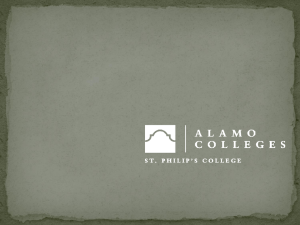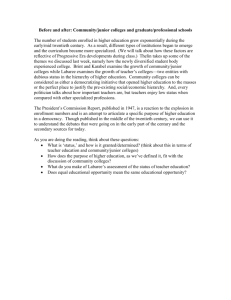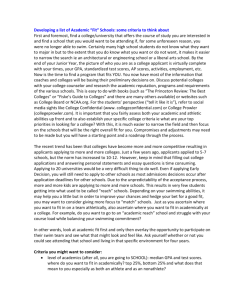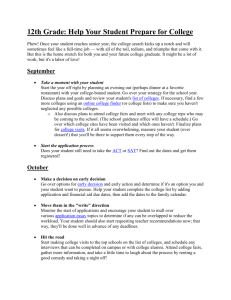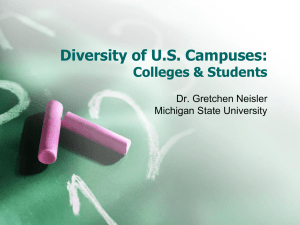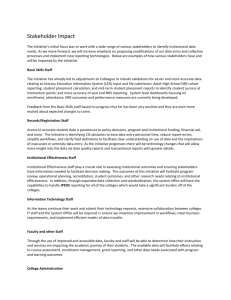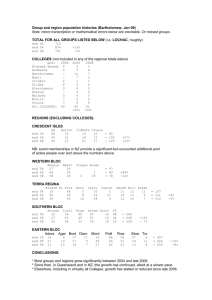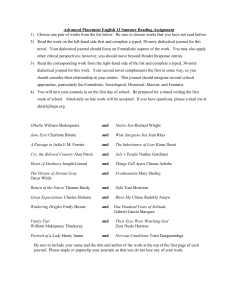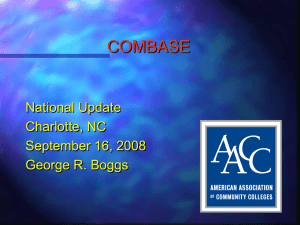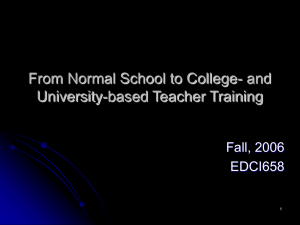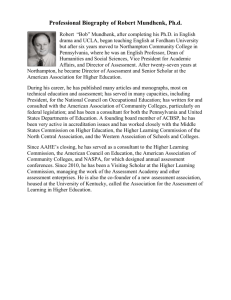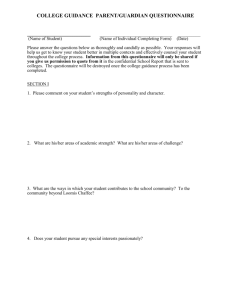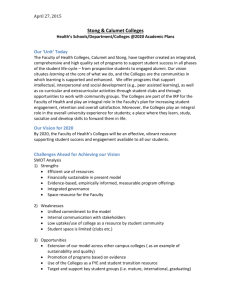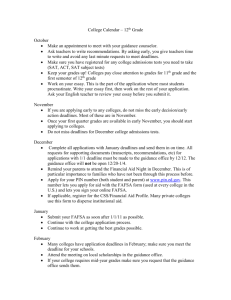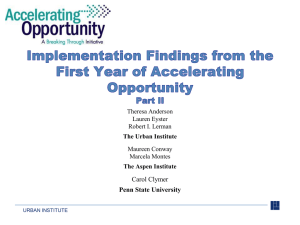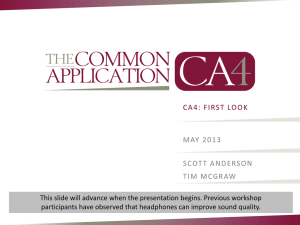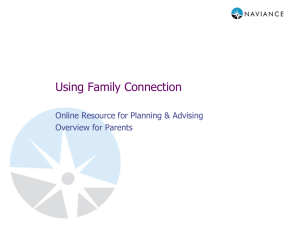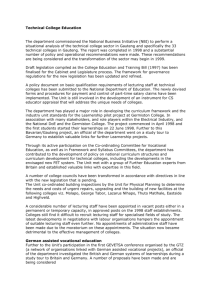High School College - Educational Options
advertisement
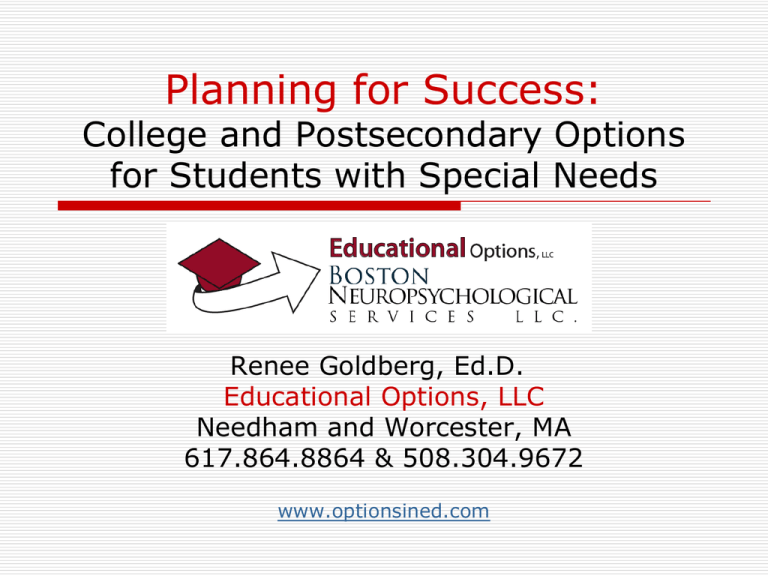
Planning for Success: College and Postsecondary Options for Students with Special Needs Renee Goldberg, Ed.D. Educational Options, LLC Needham and Worcester, MA 617.864.8864 & 508.304.9672 www.optionsined.com Postsecondary Options College Transition programs Postgraduate year Work Types of Colleges 4 year Public and Private With and Without Dorms 2 year Community Colleges Private Colleges With and Without Dorms High School vs. College High School Schedule: Classes meet daily College Classes meet 1 to 3 times per week Given 1 to 4 times per term Where students live: At home Recommended Who makes decisions: Parents On campus Students themselves Tests: Given frequently Attendance: Required High School vs. College - 2 High School College Schedules: Arranged by school Created by students Homework: Regularly graded May be graded Location of school: Community Variable, often away High School vs. College-3 High School College Degree of Freedom: Limited Great Deal Student Responsibility: Limited Great Deal Age of Students: Sm.Range Wide Range High School vs. College for Students with Learning Issues High School IDEA & FAPE (IEPs) Section 504 Modifications in Classroom Teacher & Parent Directed Teachers Parents Students Identify College IDEA Ends with Graduation Students Must Self-identify and Request Reasonable Accommodations Importance of Technology Students must become proficient during HS Too difficult to learn new strategies while adjusting to college life and academics Technology that may be useful: Kurzweil Educational Systems www.kurzweiledu.com Dragon Naturally Speaking www.dragontalk.com Inspiration Software www.inspiration.com Recordings for the Blind and Dyslexic www.RFBD.org Documentation Make sure it is current Usually within 3 years Check each college; requirements can be different! Government site: http://www.ed.gov/print/about/offices/list/ocr/ transition.html College Example: http://www.ods.ohiostate.edu/prospective_lddocumentation.asp Should I Disclose my Disability? When? Pros: Explaining an uneven academic record Explaining courses listed in transcript Cons: Gives colleges a reason to deny admission You do not have to disclose disability in the admissions process Wait until enrolled and then sign up with disability services to arrange needed academic accommodations Types of College Support Services Comprehensive Services Most support May have separate admissions May have additional fee Often provide 1 to 1 tutoring Much assistive technology available Types of College Support Services -2 Support Services Majority of colleges in this category Students need to self-advocate Group workshops and course substitutions available Basic Services Usually limited staff No additional cost Follow laws Additional services not provided The 4 Year Game Plan Grade 9 Select strong academic program Colleges want to see grades from all 4 years Think about activities and volunteering Keep good records Grade 10 Make sure classes meet college requirements Keep reading to improve vocabulary 4 Year Game Plan (2) Grade 11 Keep up grades Attend college fairs Take preliminary and standardized tests Start on working list Visit some campuses Request recommendations Keep narrowing the choices 4 Year Game Plan (3) Grade 12 Finalize list Complete personal statement Proofread everything Apply and send in required documents Wait for results Attend accepted student day CELEBRATE! What to Do About College Visits When? With Whom? How to Arrange? Educational Options Academic Plan for Success Know yourself Self advocate Work to your potential Interviews: Questions You May Be Asked Tell me something about yourself. What is your favorite book? Tell me about your academic record. Do you have any passions? Questions You May Be Asked-2 Why do you want to attend _______ College What do you see yourself doing in 5 years? What will you contribute to our college or university? Questions for You to Ask: Be Prepared I am interested in _____. What should I know about that program or department? May I take courses at other campuses? How does that work? (If disclosing) Are support services for students comprehensive? Letters of Recommendations Importance of Resume/Brag Sheet Request Early from Teachers Who Know You Well. Application and Financial Aid Information Common Application http://app.commonapp.org Fair Test http://fairtest.org/ Scholarship Information http://www.fastweb.org Financial aid form www.fafsa.org or http://www.fafsa.ed.gov/ Postgraduate or 13th Year Additional Maturity Improve academic record Improve athletic ability Vocational Programs Certificate Programs May be at community colleges or other institutions For experiential education Varying length of time Transition Programs An additional year or more after high school graduation Allows additional maturity Explore careers Examples Questions and Answers

